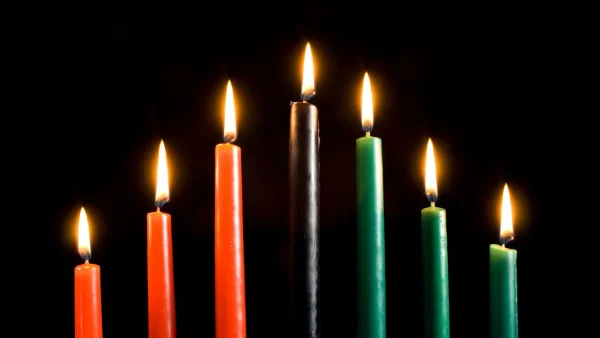
Habari Gani? NIA!
Today’s Kwanzaa principle, Nia (Purpose), calls on us to dedicate ourselves to the vital mission of restoring our families, communities, and people to their historical greatness. This principle emphasizes the responsibility we share in fostering environments that support growth, love, and success for all members of our community.
Nia reminds us that the family and the community are the foundations of human development. Within the family, children find the essential conditions for thriving—love, care, and support. A healthy child, and ultimately a strong adult, benefits from the consistent presence of nurturing individuals who take an active interest in their lives, aspirations, and daily achievements. Nia encourages us to ensure these conditions are present in every family and neighborhood, enabling individuals to flourish and reach their full potential.
Nia Day is a time to engage in activities that honor the principle of Purpose. While these activities are flexible and adaptable, here are a few suggestions to inspire meaningful celebration:
- Center the celebration on your family and community.
- Infuse the day with joy and festivity to uplift everyone involved.
- Share a special meal together, either at home or in a community setting.
- Reflect on the African American National Flag as a supplemental Kwanzaa symbol.
Suggested Nia Activities:
- Discuss the remarkable achievements of African Americans throughout history.
- Use social platforms like Facebook to initiate national conversations about strengthening and restoring Black families.
- Engage in activities that contribute to rebuilding and revitalizing families and neighborhoods.
By observing Nia, we reaffirm our commitment to the collective progress and empowerment of our communities, building a legacy of purpose and greatness for future generations.
The post Habari Gani! Happy Kwanzaa! Day 5 NIA(Purpose) appeared first on .
